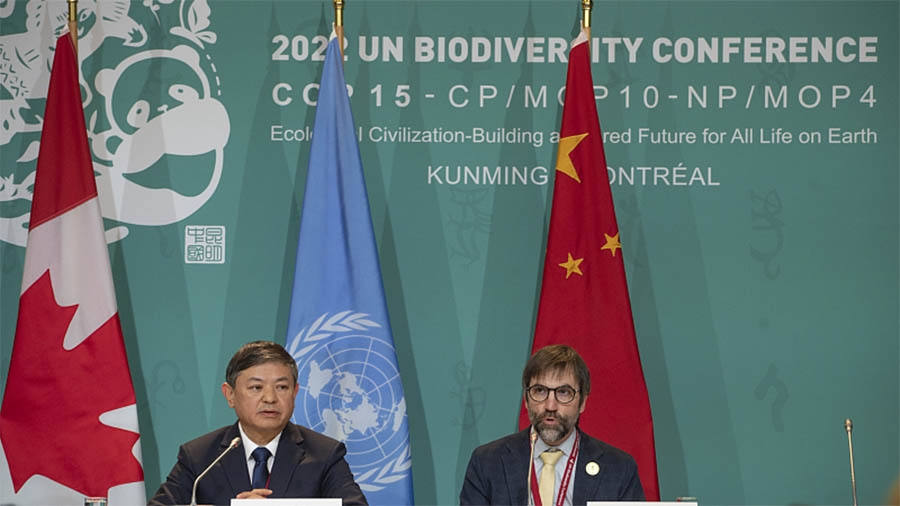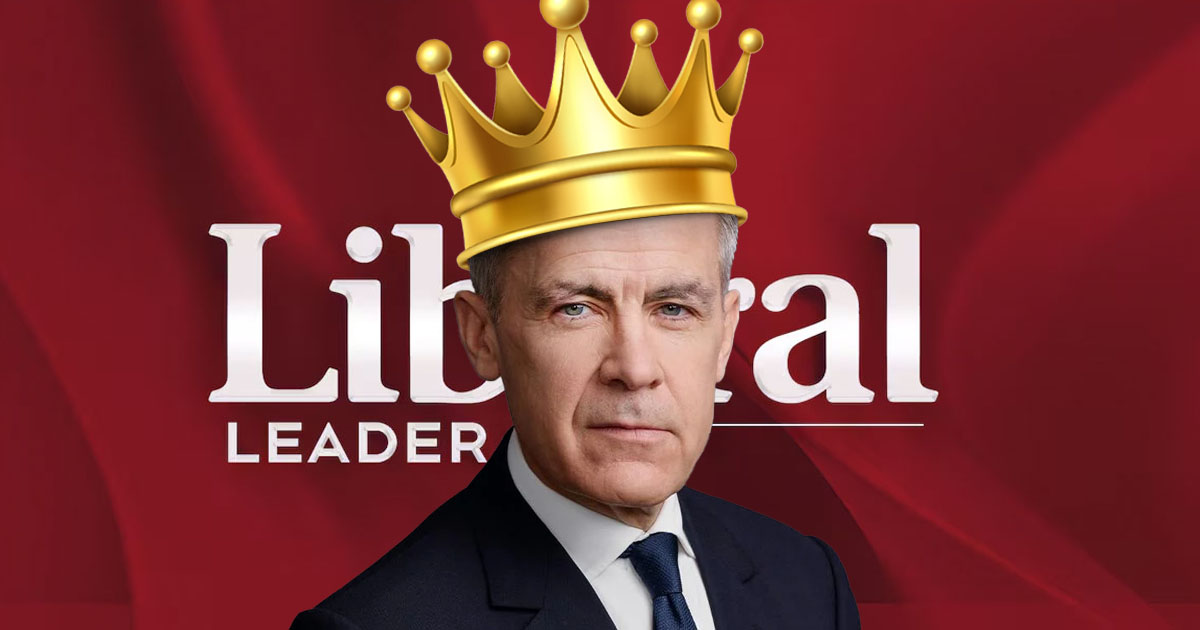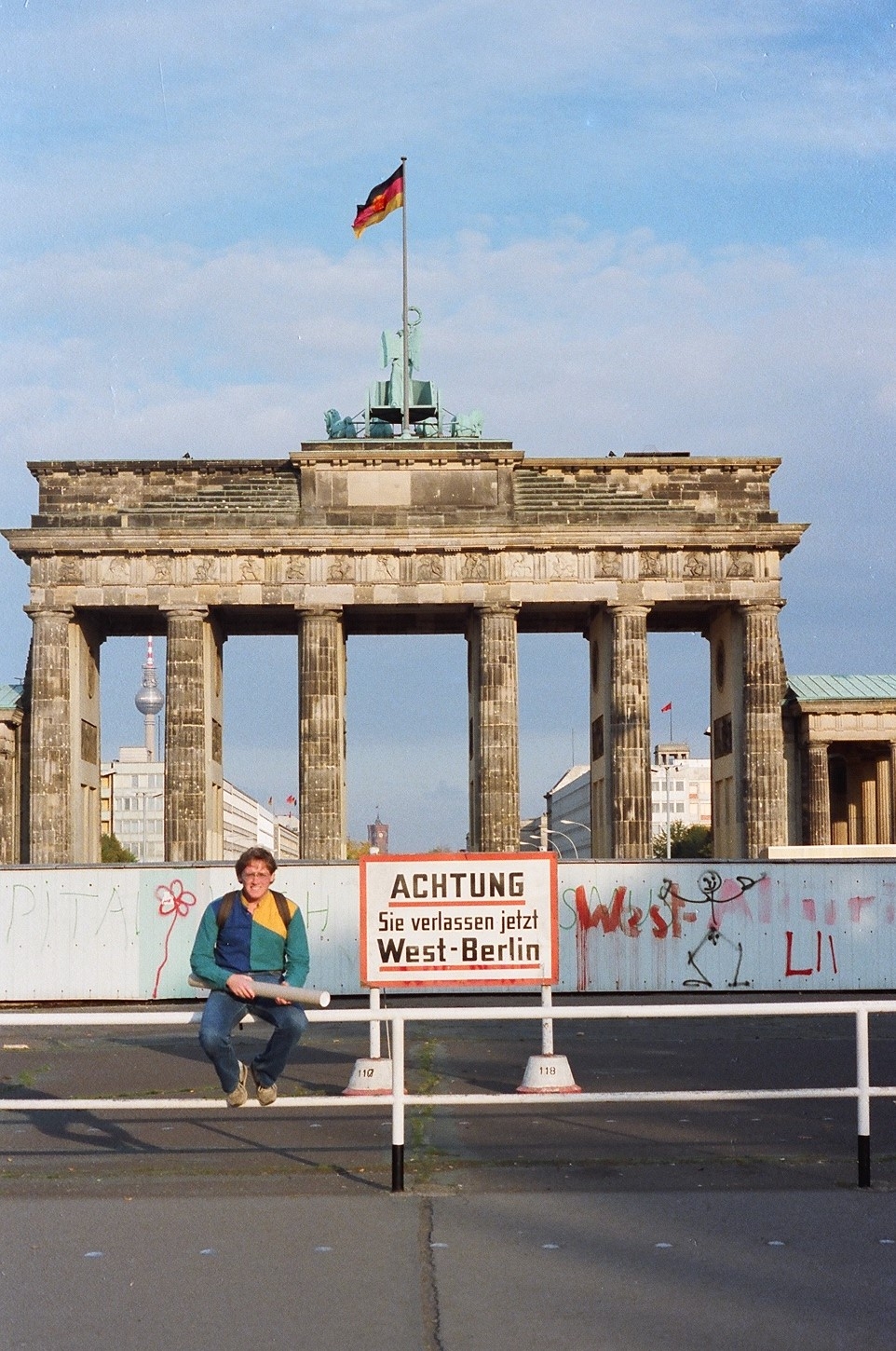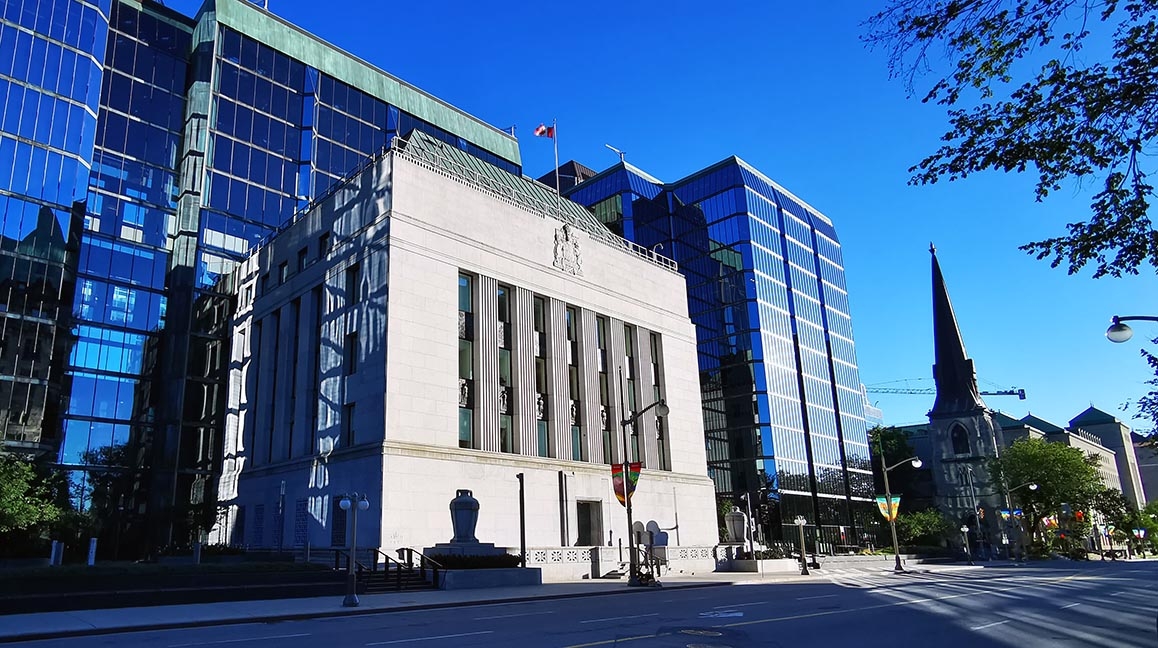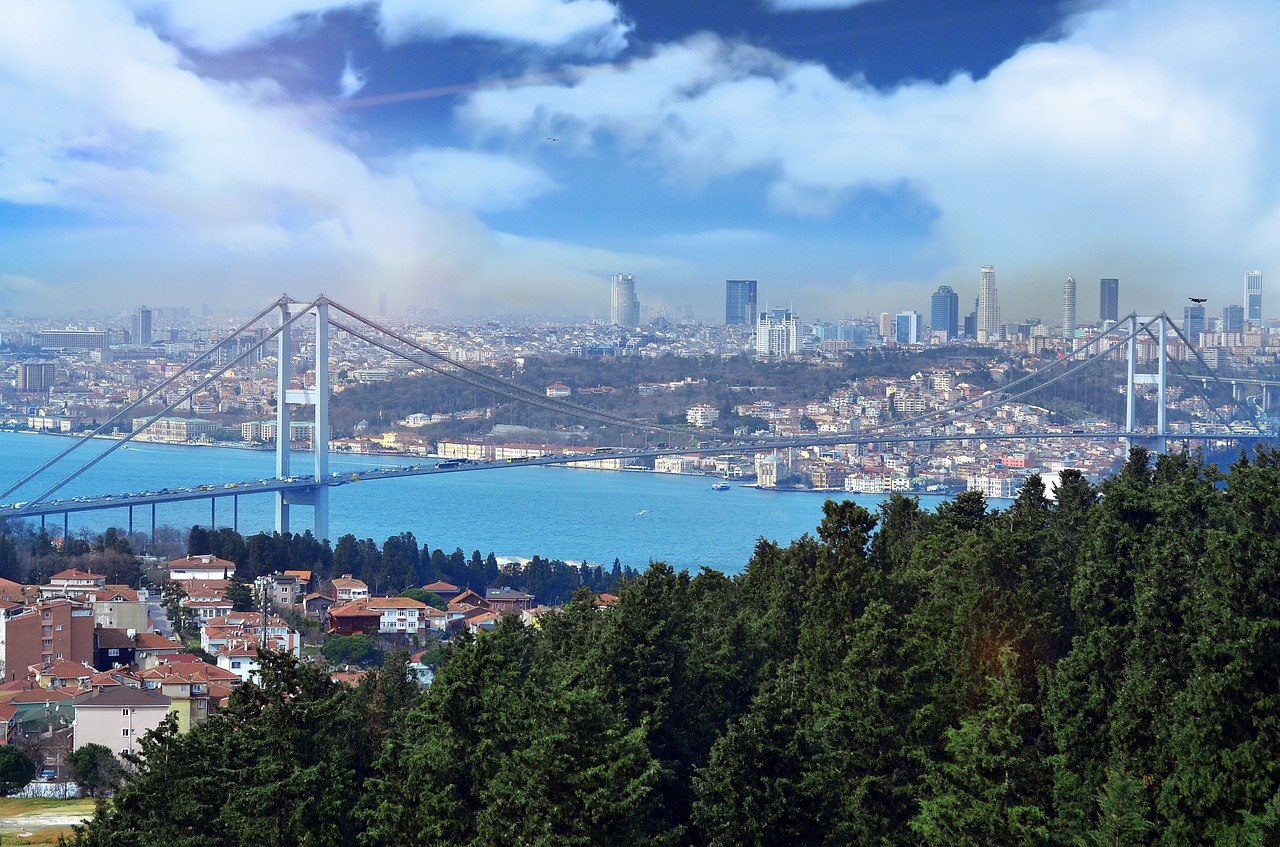
NATO, the US and Europe have failed Turkey — It’s not the other way around
Put yourself in Turkey’s shoes and Operation Peace Spring makes sense
In June 2017, I went to Gaziantep Turkey which is 90 minutes from the Syrian border and home to one of the largest Syrian refugee camps along the Turkish Syrian border. At time it was estimated that Turkey was hosting almost three million refugees. To witness the scale of the crisis on the ground was staggering. Two years later and Turkey is hosting more than 3.5 million Syrian refugees.
People began flowing across the Turkish border at the onset of the Syrian civil war, in 2011, putting Turkey’s borders and territorial integrity with Syria at risk. By 2015-2016 ‘the migrant crisis’ began to impact Europe as hundreds of thousands of fleeing and frightened people, many of them women and children, began trekking towards Europe.
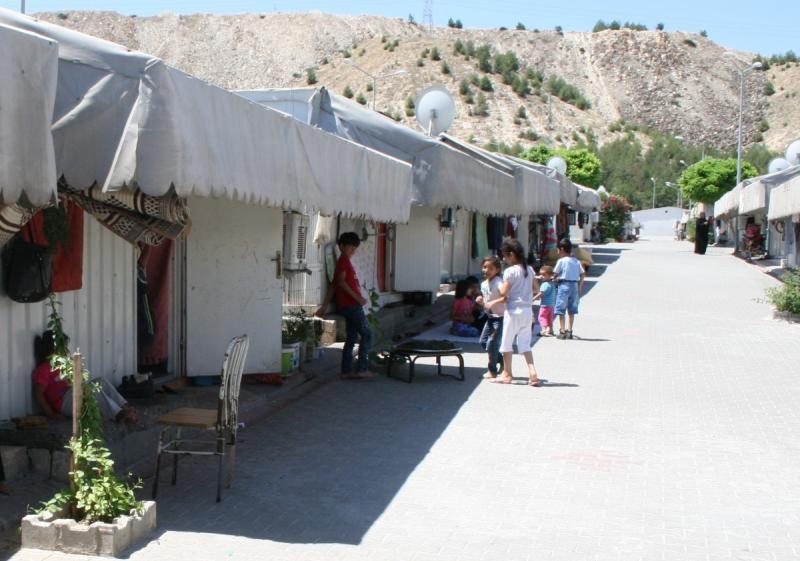
European governments were in a panic to stem the tide of refugees flowing west towards their borders. By the end of 2016 the 28-member European Union (EU) had negotiated an agreement with Turkey and promised to pay 6.6 billion Euros ($7.2 billion US) to Turkey to help them manage and sustain the living conditions of Syrian refugees who had settled there as a result of the ongoing conflict.
By 2019, the EU had given less than half of the promised financial aid. Meanwhile the government of Turkish President Recep Tayyip Erdoğan had spent $40 billion (and climbing) to support the Syrian refugees living in Turkey.
Fleeing Syrians are treated with kindness, respect and care in Turkey in very difficult circumstances. The refugee camp at Gaziantep has secure perimeters, trailer-like shelters with basic amenities, access to doctors and medical and social support, schools for kindergarten and high school students and sports and other programs that bring some respite and comfort the thousands of innocent families affected by the carnage.
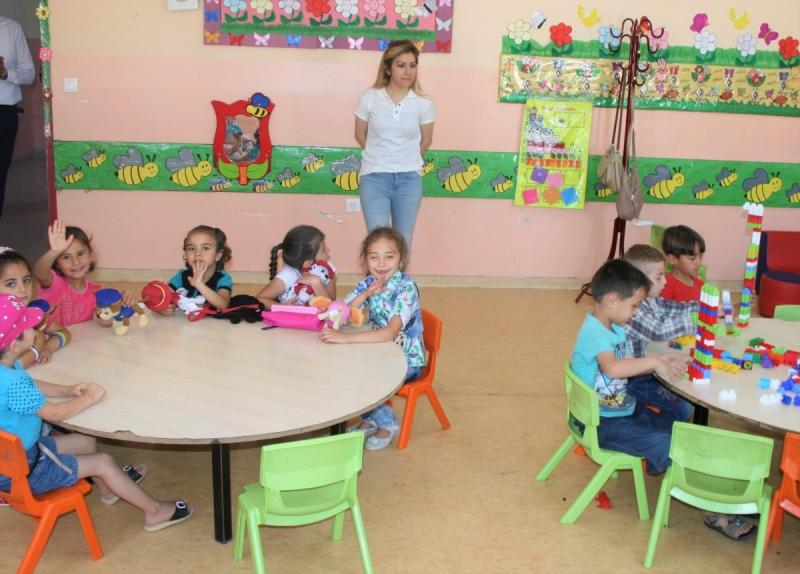
The Red Crescent and Turkish government provide a monthly stipend of 300 lira (aproximately $70 US) for food and other amenities to every refugee regardless of their age. Some refugees work in the local agricultural industry to earn extra money and to feel a sense of purpose. I was truly touched by the commitment of the mayor and council in Gaziantep and the local residents who were on the front lines of caring for so many innocent people. A recurring theme they shared with me was the importance of providing schools and education and as much stability as possible to combat the possibility of having a lost generation of children who, as a result of the violence and destruction, would be damaged for life. In one of the grade schools at the camp there were drawings the children had made hanging on the walls in the classroom. Many of them showed destroyed homes and mothers and siblings afraid or crying. There were many drawings with guns and bombs and planes. It was heartbreaking. This is the real cost of evil, laid bare on the innocence of children.
Since then, I’ve learned to take with a grain of salt the bravado and tough talk of many western security people and ‘analysts’ when they chirp on with self-serving lectures about Turkey and how the Turks have somehow betrayed NATO and the West. This ‘false narrative’ purports that President Erdoğan is an unelected dictator and that Turkey is NATO’s only non-democratic nation. They claim that Erdoğan has been trying to re-create Turkey as a modern-day imperial Ottoman power, as if a Turkish President who does not comply with their thinking has some how gone rogue, preferring to take Turkey back to the past.
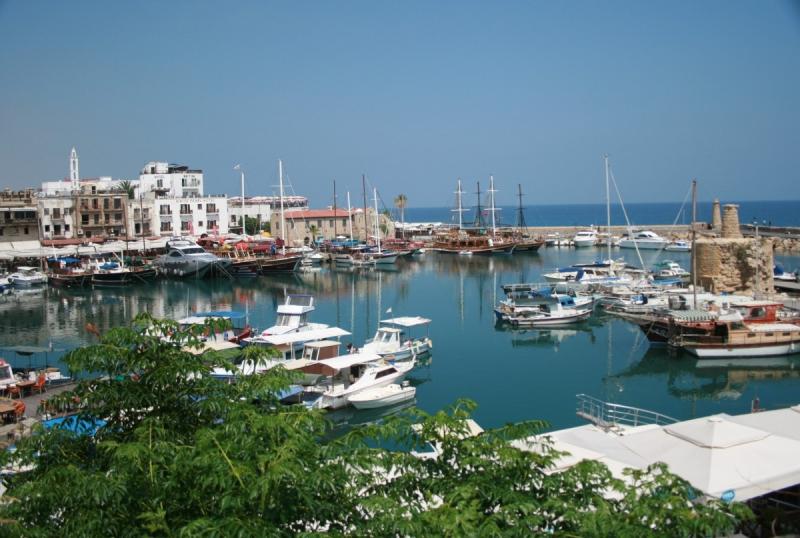
Turkey is a modern, stable European country with a highly-sophisticated economy, robust entrepreneurial businesses and an urbane public sector and government. The counter narrative from many of Turkey’s so-called western allies is preposterous on many levels and completely ignores the history of the country, its people and the legitimacy of its democratically elected government and President.
The story of Prime Minister Recep Tayyip Erdoğan
Turkey has been ruled for 17 years by Prime Minister Recep Tayyip Erdoğan of the AK party. He was first elected in the 2002 Turkish General Election winning 34 per cent of the vote. Many of the Turkish generals were at odds with Erdoğan from the moment that he came to power and regarded his brand of Islamism — although relatively mild by regional standards — as a direct threat to the republic created by Kemal Ataturk in 1923. The Turkish military have seen themselves as the protector of the Ataturk legacy and Turkish constitution since his death in 1938. After being elected, Erdogan began a slow but steady program to reign in the power of the army high command to assert civilian control over the armed forces.
Erdoğan was re-elected in 2007 increasing his margin to 46.5 per cent. A referendum was also held on October 21, 2007 on the question of whether the president should be elected directly by the public or by parliament. The voters said “yes” to electing the president, lowering the minimum valid threshold for MPs in a parliamentary session to 184, and reducing the legislative year to four years instead of five.
The “yes” side received 68.95 per cent of the votes while the “no” side drew 31.05 per cent. In the 2011 general election Erdoğan won again, increasing his support to 49.8 per cent of the vote. By 2014 changes brought in by the Turkish Parliament allowed for a direct national vote for president, rather than election by members of the parliament. This was the result of constitutional reforms agreed upon in a 2007 constitutional referendum. Over 55 million people were eligible to vote, both within Turkey and abroad. Prime Minister Erdoğan of the AK party ran for president and won 51.79 per cent of the vote.
On July 15, 2016 there was an attempted coup-d’état against Erdoğan and his government by soldiers in the Turkish military who briefly seized control over parts of the Turkish armed forces, government and media. The Turkish parliament and presidential palace were bombed and there were shootouts between the loyal elements (of police and armed forces) and pro-coup soldiers occupying Ankara and Istanbul streets. The coup was brought to a quick end but over 300 people were killed and more than 2,100 were injured. Afterwards, a three-month state of emergency was announced by Erdoğan who accused the head of United States Central Command, General Joseph Votel, of “siding with coup plotters”. Votel had earlier admonished the Turkish government for arresting the Pentagon’s contacts in Turkey.
In 2017, a constitutional referendum was held where Turkish citizens voted on a set of 18 proposed amendments to the Constitution of Turkey to replace the existing parliamentary system with a presidential system. The post of prime minister would be abolished, and the presidency would become an executive post vested with broad executive powers and the Parliament would be increased from 550 seats to 600 seats. The total vote count was 25,157,463 “yes” (51.41 per cent) and 23,779,141 “no” (48.59 per cent).
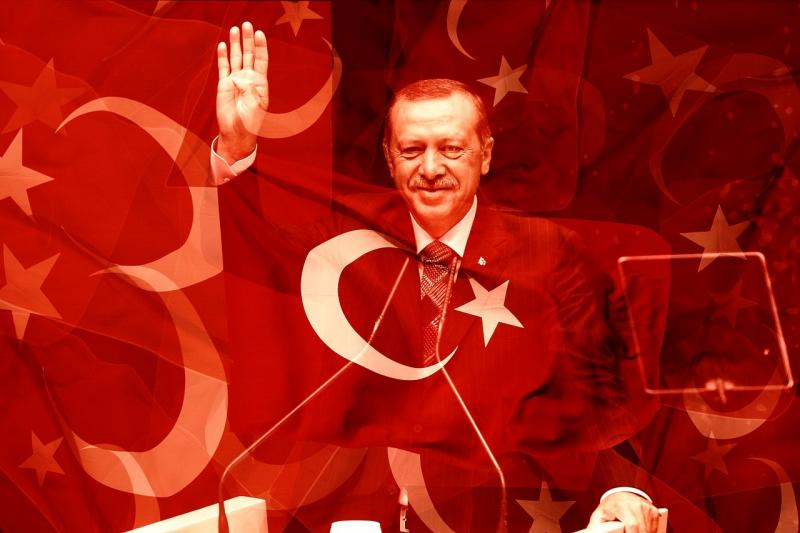
It was a slim victory for Erdoğan at the ballot box ,but a huge victory personally as the result ratified the earlier constitution and referendum reforms that gave the office of the President of Turkey increased powers and influence.
American (NATO)-Turkish Tensions
American and NATO analysts often claim that Turkey has rebuffed their attempts to promote Turkey as the cornerstone of America’s or NATO’s Middle East policy. There is probably some truth to this. The Turks blame both the United States and European countries for destabilizing the entire Middle Eastern region as a result of the 2003 American-led invasion of Iraq. Turks link the civil war in Syria, the rise of Daesh (ISIS) and the current refugee issue in Turkey to that American- and European-led debacle. After creating an absolute and destabilizing mess in the region, the Americans just up and left. Things worsened with American inaction at the onset of the Syrian civil war, in 2011. Millions of Syrians were forced to flee into Turkey leaving the country’s borders exposed and vulnerable to threats from the numerous countries and terrorist groups who were involved by proxy in arming combatting factions in Syria.
In 2011, Syrian President Bashar Hafez al-Assad, a corrupt and brutal dictator, was warned by the United States and NATO not to use chemical weapons against his own people. On August 20, 2012, President Barack Obama told a group of reporters that the use of chemical weapons by Assad would cross his ‘red line.’ A year later, almost to the day, Assad’s Syrian forces killed more than 1,400 people with sarin gas: a particularly horrifying chemical weapon that can cause paralysis, convulsions, or death. Obama did nothing. Instead, a month later, he agreed to a deal with Russia (who were allies of Assad) to remove and destroy 600 metric tons of Syria’s chemical weapons stockpile. The thinking was this would make it impossible for Assad to gas his own people — although by default the American response sent the signal that he could still kill them using conventional weapons without intervention.
Sadly, Assad secretly kept much of his chemical stockpile and continued to them on his people. Human Rights Watch has cataloged about 85 chemical weapons attacks in Syria since August 21, 2013 by the Assad regime. The American and NATO inaction in Syria would lead to the rise of Daesh (ISIS ) and further embolden Assad to kill even more of his people to save his regime. Meanwhile, Turkey a NATO member and American ally could only watch as this carnage increased on their borders. President Erdoğan had declared several times that he wanted Assad gone, considering him a war criminal for killing half a million of his own people.
The Americans did not want to be involved in the Syrian war directly, and instead supported opponents to the Assad regime who were also sworn enemies of Turkey. They did this by providing arms, assistance and training to the Syrian Democratic Forces or SDF. This alliance is composed of Kurdish, Arab and Assyrian/Syriac militias who are militarily led by the People’s Protection Units or YPG, an armed wing of the Kurdish Democratic Union Party of Syria. They are seeking autonomy for Syria’s Kurds and are willing to work with any power capable of helping them achieve that goal. They have been criticized by Turkey for their alleged support of the PKK.
The Kurdistan Worker’s Party or PKK is a Kurdish militant and political organization, based in Turkey and Iraq, that have been involved in armed conflict with the Turkish state with the initial aim of achieving an independent Kurdish state. After World War 1 and the rise of independent Arabic states, the Kurds were left without a homeland. They were mostly scattered across the northern half of the Middle East, building communities in Iran, Iraq, Syria, and Turkey. As a minority group in a region known for religious and ethnic persecution, they regularly faced challenges to their survival. The PKK first rose to political prominence in the 1980s in Turkey by calling for the establishment of an independent ethnic state. Disagreements between the PKK and the Turkish government led to the PKK carrying out numerous terrorist attacks and suicide bombings inside Turkey that have killed dozens of innocent people and that still continues. The United States, European Union and Turkey all regard the PKK as a foreign terrorist organization. Despite this, the Americans still funded groups linked to the PKK while at the same time, in 2018, they offered a $12 million reward for information on three PKK leaders.
The primary opponents of the SDF, YPG and PKK are the rebel groups involved in the Syrian civil war, such as ISIL, Turkey-backed Syrian opposition groups, al-Qaeda affiliates, and their allies. All three are considered terrorist groups by Turkish government and the PKK is considered a terrorist group by both the Americans and NATO.
The animosity between Turkey’s government and regional ethnic factions of the Kurdish people dates back to well before President Recep Tayyip Erdogan’s rise to power or the start of the Syrian civil war. After World War One and the rise of independent Arabic states, the Kurds were left stateless. As a minority group in a region known for religious and ethnic persecution, they regularly faced challenges to their survival. However, for the Turks, the American arming of the Kurds created of grand sense of déjà vu, reminding them of the Sèvres Syndrome. The term originates from the Treaty of Sèvres of the 1920s, in which Western powers partitioned the former Ottoman Empire between the Kurds, Armenia, Greece, Britain, France, and Italy, leaving a small unaffected area around Ankara under Turkish rule. However, it was never implemented due to Turkish victory on all fronts during the subsequent Turkish War of Independence, led by Mustafa Kemal (Ataturk).
As Michael Reynolds noted in his October 2019 column, Turkey and Russia: A Remarkable Rapprochement: “The fundamental goal of the Kemalists in founding the Republic of Turkey was to forge out of the disparate Muslim communities of Anatolia an indivisible nation, unified as a single whole and loyal to the state, and thereby impervious to the fracture and partition that brought down the Ottoman empire. The belief that outside powers are intent on using Kurdish nationalism to subvert and break up Turkey from within has haunted the Turkish Republic from its very beginning”.
In 1919, the Western powers used the Kurds and other groups to try to weaken Turkish self determination. A century later, it appeared they were conspiring to do the same again.
When the Americans decided to fund and support the SDF, YPG and PKK as their proxies in Syria, they did so with the full knowledge that the PKK was an enemy of the republic of Turkey.
In other words, the Americans armed the enemies of their NATO ally. This greatly alienated Turkey from the United States and led the Erdoğan government, as a form of self preservation, to take steps to improve their sometime strained relations with Russia and Iran.
In October 2019, on the direct orders of US President Donald Trump, the American military abruptly abandoned their support for the Kurdish forces in Syria. This meant an inevitable showdown would happen between the Turks and the Kurdish fighters who had set up enclaves along the Turkish-Syrian border inside Syria. Incredulously, Trump did not seem to connect the dots and seemed quite shocked when just days after he ordered American troops out of the region, the Turks invaded North Eastern Syria to clear out the SDF, YPG and PKK.
Operation Peace Spring
The first obligation of any government in any country is to protect its people and to secure its borders. NATO and the Americans have proven to be a fair-weather friend to Turkey, and the EU’s collective prejudice against them continues. Turkey understands through experience that they can only count on themselves to protect their interests. The American arming of Kurdish terrorists, the EU failure to meet its obligations to pay Turkey billions of euros as part of its promised refugee support, combined with American, EU, Canadian and NATO failures to confront the notorious and murderous Syrian dictator Bashar Hafez al-Assad left Turkey with little choice but to respond militarily to secure their border with Syria. For the Turks it is a very simple premise. They would not allow an armed faction who they consider terrorists and a threat to their country setting up camp alongside their borders within a destabilized Syria.
Operation Peace Spring began on Tuesday October 9, 2019 with Turkish armed forces launching an air and land combat military offensive with the objectives of creating a 30-km “safe zone” in north-eastern Syria. This would effectively eliminate Kurdish rebels in the region, who were the target, and allow the Turks to relocate refugees from the Syrian civil war back to their country.
In an op-ed to the Wall Street Journal just days after the incursion President Erdoğan laid out the case for Operation Peace Spring: “The Turkish military, together with the Syrian National Army, will remove all terrorist elements in northeastern Syria. These militants are preventing Syrian refugees, including some 300,000 Kurds, from returning home. Our mission is simultaneously to combat the Kurdistan Workers’ Party, the terrorist organization known as the PKK, along with its Syrian affiliates and Islamic State. Turkey has no argument with any ethnic or religious group. From our perspective, all citizens of the Syrian Arab Republic—who don’t belong to terrorist groups—are equal. In particular, we object to equation of the PKK with the Syrian Kurds. Likewise, Turkey opposes equation of ISIS, which has murdered thousands of innocent people, with Islam. We will ensure that no ISIS fighters leave northeastern Syria. We are prepared to cooperate with source countries and international organizations on the rehabilitation of foreign terrorist fighters’ spouses and children”.
The Western response to the military operation was predictable, insular and self serving. It downplays the real threats Turkey faces on its border with Syria, the prejudice that confronts Turkey everyday as Europe’s largest Muslim country (80 million people of whom 95 per cent are Muslim) and the reality of having a country located in one of the world strategic hotspots. Turkey borders Syria, Iraq and Iran to the South, shares the Black Sea with Russia to the north and is the gateway to Europe and the Mediterranean in the west.
The Trump order for American forces to abandon the Kurds led to a debacle and a disorderly withdrawal by US troops happening at the same time Turkish forces were invading. As the Turks entered Syria Trump declared that he was, “Fully prepared to swiftly destroy Turkey’s economy if Turkish leaders continue down this dangerous and destructive path”, which just further infuriated the Turks. Trump’s rhetoric changed again, and he agreed to send Vice President Mike Pence to Turkey to discuss the matter with Erdoğan.
After the meeting, the Americans and Turkish released a joint Turkish-US statement on north-east Syria that clearly sent the message that the Americans and NATO would not interfere with Turkey. This was a diplomatic coup for Erdoğan and his government:
1. The US and Turkey reaffirm their relationship as fellow members of NATO. The US understands Turkey’s legitimate security concerns on Turkey’s southern border.
2. Turkey and the US agree that the conditions on the ground, north-east Syria in particular, necessitate closer coordination on the basis of common interests.
3. Turkey and the US remain committed to protecting NATO territories and NATO populations against all threats with the solid understanding of “one for all and all for one”.
4. The two countries reiterate their pledge to uphold human life, human rights, and the protection of religious and ethnic communities.
5. Turkey and the US are committed to D-ISIS/DAESH activities in northeast Syria. This will include coordination on detention facilities and internally displaced persons from formerly ISIS/DAESH-controlled areas, as appropriate.
6. Turkey and the US agree that counter-terrorism operations must target only terrorists and their hideouts, shelters, emplacements, weapons, vehicles and equipment.
7. The Turkish side expressed its commitment to ensure safety and well-being of residents of all population centers in the safe zone controlled by the Turkish Forces (safe zone) and reiterated that maximum care will be exercised in order not to cause harm to civilians and civilian infrastructure.
8. Both countries reiterate their commitment to the political unity and territorial integrity of Syria and UN-led political process, which aims at ending the Syrian conflict in accordance with UNSCR 2254.
9. The two sides agreed on the continued importance and functionality of a safe zone in order to address the national security concerns of Turkey, to include the re-collection of YPG heavy weapons and the disablement of their fortifications and all other fighting positions.
10. The safe zone will be primarily enforced by the Turkish Armed Forces and the two sides will increase their cooperation in all dimensions of its implementation.
11. The Turkish side will pause Operation Peace Spring in order to allow the withdrawal of YPG from the safe zone within 120 hours. Operation Peace Spring will be halted upon completion of this withdrawal.
12. Once Operation Peace Spring is paused, the US agrees not to pursue further imposition of sanctions under the Executive Order of October 14, 2019, Blocking Property and Suspending Entry of Certain Persons Contributing to the Situation in Syria, and will work and consult with Congress, as appropriate, to underline the progress being undertaken to achieve peace and security in Syria, in accordance with UNSCR 2254.
Comments from other American and Canadian leaders in the aftermath of the operation suggested, bizarrely, that the Turkish invasion would somehow also help Daesh (ISIS). Congressional Chair Nancy Pelosi said from a conference in Amman that, “With the deepening crisis in Syria after Turkey’s incursion, our delegation has engaged in vital discussions about the impact to regional stability, increased flow of refugees and the dangerous opening that has been provided to ISIS, Iran and Russia.” Canada’s Foreign Affairs Minister Chrystia Freeland tweeted on October 9, 2019 that “Canada firmly condemns Turkey’s military incursion into Syria today”. She added, “This unilateral action risks undermining the stability of an already-fragile region, exacerbating the humanitarian situation and rolling back progress achieved by the Global Coalition Against Daesh (ISIS), of which Turkey is a member”.
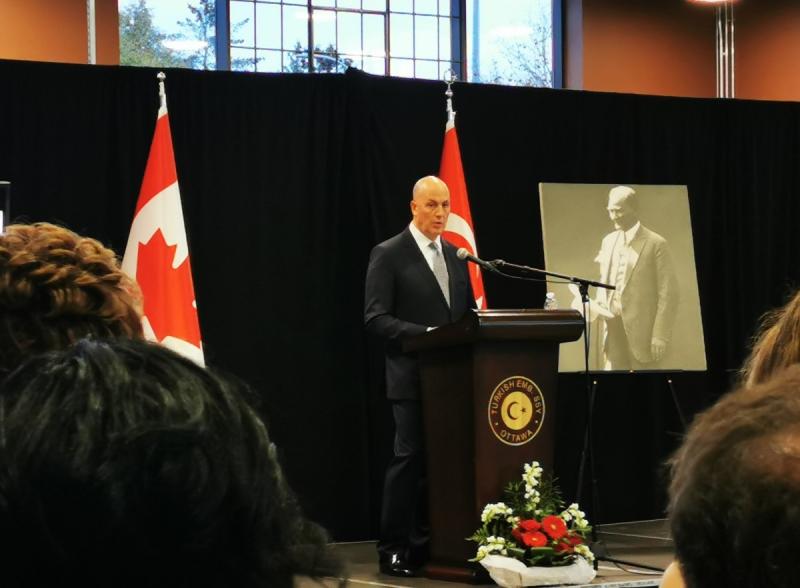
Despite Chrystia Freeland’s comments, the Canadian government secretly empathized with the Turks and while the government was publicly saying one thing, they were taking other measures to show support for Turkey. This was obvious when at a Turkish National Day celebration in Ottawa on October 29, 2019, just two weeks after the military operation began, more Canadian forces generals, senior officers, foreign affairs personnel and officials were in attendance than in any previous year. The Canadian Forces have worked closely with the Turkish military in NATO for decades and there are strong bonds between the two. This has proven to be a key communications channel between governments on multiple matters related to the region.
French President Macron and German Chancellor Angela Merkel both harshly criticized the Turkish offensive saying it would result in another humanitarian crisis. Germany pulled its small NATO force out of the country and the EU responded by limiting arms sales to Turkey. German Defense Minister Annegret Kramp-Karrenbauer told a reporter that, “The Turks are a NATO partner, and NATO is an alliance based on values”. Adding that, “If there are indications that Turkey is really planning to stay in northern Syria as a kind of occupying force, then there must be a clear answer from us. That will not do”. President Erdoğan responded to them by threatening to allow a wave of refugees into Europe if European countries continued to condemn his actions in Syria. He was incensed that this was coming from the very same leaders who did not pay the billions they had promised to provide to help the Turks manage the ‘migrant crisis’, in 2016.
Ironically, the Turkish incursion is probably the main impediment to another larger humanitarian crisis. Erdoğan has been dealing with a catastrophic humanitarian crisis for five years — it really can’t get any worse for Turkey. For the Turks, part of the reason for the operation was to secure a buffer zone inside Syria so they can start to repatriate Syrian refugees in Turkey back to their own country.
The Kurdish militia responded to the Turkish invasion by turning to the Assad Syrian government and the Russians for help. Operation Peace Spring stopped any hope a sovereign state for the Kurds in its tracks.
Erdoğan has cleverly played off different sides at home and abroad to achieve his objectives. The Turks remain in NATO — with the second-largest military in the alliance at nearly 650,000 troops — and they continue to allow a US military airbase in Incirlik to operate. Relations between Turkey and the United States are strained, but they remain stable. The Turks have managed a rapprochement with Russia and are getting along with Iran. They have cleared out their Kurdish adversaries along the border, creating a buffer zone within Syria to start returning Syrian refugees’ home. Since Operation Peace Spring began, Erdoğan’s popularity has risen in Turkey. Even Erdoğan’s key political opponents are supporting the operation.
The Turks have achieved these objectives despite threats from their ‘allies’ in the West and traditional adversaries in the East. By any measure, Erdoğan’s handling of these matters is impressive regardless of whether or not one agrees with the end result. Turkey’s operation in northern Syria seems to have achieved its primary objectives. The real question is what is next.
The Republic of Turkey has been a steadfast and reliable ally of the West since the end of WW2. However, the carelessness of American and European governments to develop policies that respect the fundamental security and other concerns of Turkey, a country that been a key ally of the United States and NATO for decades in Europe, the Middle East, the Balkans, the Black Sea, the Caucasus, and Eurasia goes a long way to explain Turkish actions in recent years and months.
Increasingly, for its own security and national interests Turkey has turned to Russia and other western adversaries, when it is in their national interest. This is the same successful strategy that Mustafa Kemal (Ataturk) employed a century ago. Like Kemal, Turks today realize they can only count on themselves to achieve the outcomes they want.
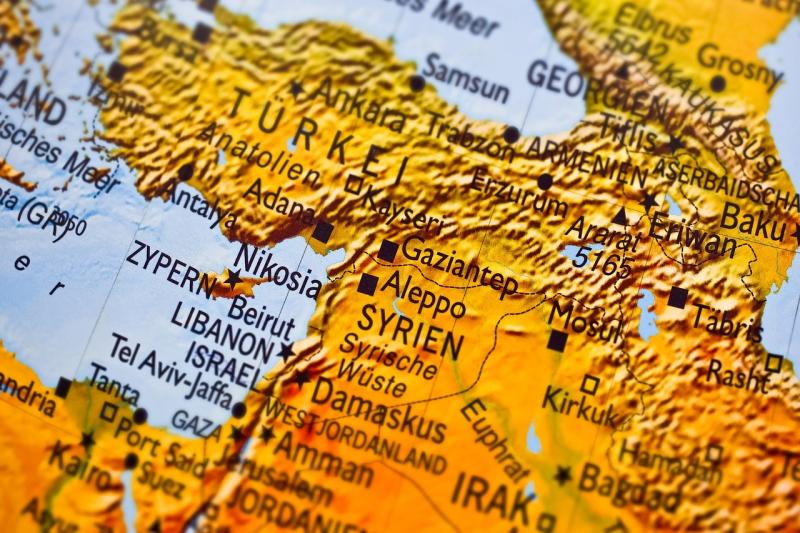
Turkey and Ataturk
Turkey is one of the great countries of Europe, a geographical and cultural crossroads where European tradition meets and seamlessly merges with Asian culture to create a unique, vibrant colourful, charismatic, contradictory, marvelous and magnificent place like no other. The 80 million people in Turkey live in a country that is democratic and secular, with a majority Muslim population that embrace their role as the meeting point between the great western and eastern, civilizations. Turks are a reserved, gracious, generous and friendly people with hearty laughs and a gentile demeanour.
A common theme is their love, admiration, and respect for Mustafa Kemal Atatürk, a war hero who led the Turkish victory at the Battle of Gallipoli and the founder of the modern Turkish Republic. Atatürk’s photo is proudly posted by citizens everywhere: in the Parliament, in universities, in coffee shops, at hotels and restaurants and even in family homes. He is revered in Turkey much like Roosevelt, Kennedy and Reagan are in the United States, or Winston Churchill is in Britain, or Pierre Trudeau, Sir John A. or Lester Pearson are in Canada. Atatürk’s principles are still the true values of the nation.
Prior to 1922, Turkey was the centre of the Ottoman Empire: a multinational, multilingual empire controlling most of Southeast Europe, parts of Central Europe, Western Asia, parts of Eastern Europe and the Caucasus, North Africa, and the Horn of Africa. At the beginning of the 17th century, the empire contained 32 provinces and numerous vassal states. Over time, many of these were later absorbed into the Ottoman Empire, while others were granted various types of autonomy. Constantinople was the home to the Sultans and one of the grandest capital cities in the world. After World War 1, Atatürk led a popular uprising and revolution that ended the reign of Sultans and closed the chapter on Ottoman Empire.
Atatürk became the first president of the new Turkish Republic and, from 1923 until his death in 1938, he initiated a rigorous program of political, economic, and cultural reforms that brought Turkey into the modern age. His reforms remain the underpinnings and basis for the modern and secular Turkish state of today. To that end, the majority of Turks whom I met on my travels believe that by continuing to follow Ataturk’s principles, Turkey’s future will be bright and assured.
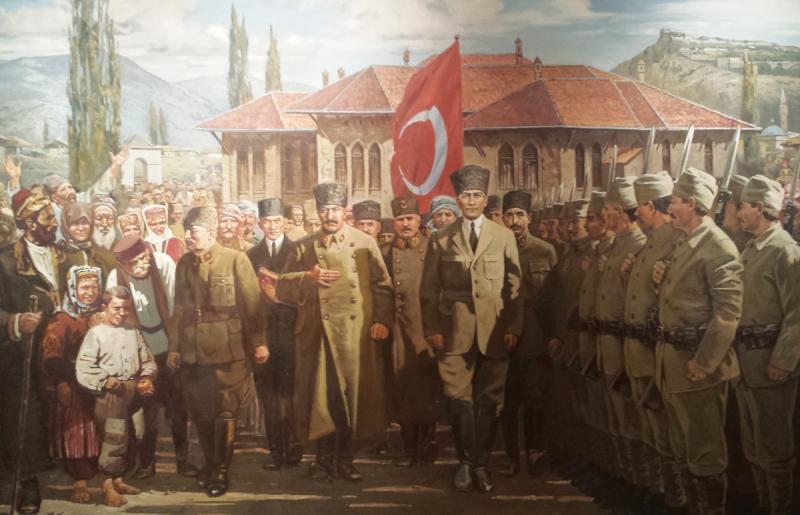
Ideologically, Atatürk was a secularist and nationalist and his policies and theories are called Kemalist. His reforms include naming Ankara as the new capital, instituting compulsory, free primary education, and opening thousands of new schools all over the country. Turkish women received equal civil and political rights under his presidency, ahead of even many Western countries. Atatürk actively encouraged non-Turkish minorities to speak Turkish instead of their own languages. Native non-Turkish names of places were abolished and changed into Turkish, including changing the name of Constantinople to Istanbul, and the last names of non-Turkish minorities were changed to Turkish renditions.
The Turkish Parliament granted him the surname Atatürk in 1934, which means “Father of the Turks”, in recognition of the esteem he was held in by the people. He died on November 10, 1938 at the rage of 57 of cirrhosis of the liver. Since then, the Turkish Army has seen itself as the guardian of Turkey's secular constitution and it has led five coup d’états on occasions when they felt the government was not obeying the Constitution.
In May 27, 1960, a coup took place when the ruling party started breaking away from the strict rules imposed by Atatürk, and began to allow religious practices, including the opening of hundreds of mosques and permitting prayers in Arabic. Coup leader Cemal Gursel declared that, “the purpose and the aim of the coup is to bring the country with all speed to a fair, clean, and solid democracy,” and that the army aimed to hand over power to a democratically elected government. Gursel eventually held power as prime minister and president until 1966.
On March 12, 1971 economic stagnation led military general Memduh Tağmaç to give Prime Minister Süleyman Demirel an ultimatum. He demanded “the formation, within the context of democratic principles, of a strong and credible government, which will neutralize the current anarchical situation”. Demirel’s resigned and while the military didn’t directly seize power, they would oversee a series of transitional governments until 1973.
On September 12, 1980 some high-ranking Turkish officers initiated a coup on national television, together with the announcement that martial law would be imposed on the country. The constitution was revoked and substituted with another that was put to a referendum (in 1982) and approved by 92 per cent of the voters. In the follow up election, Kenan Evren, one of the generals who led the coup, was elected president for the following seven years.
On February 27, 1997, the military took control of the country again overthrowing the presidency of Süleyman Demirel because of concerns about the increasing presence of political Islam in the country. A group of generals, led by İsmail Hakkı Karadayı, presented the government, led by Necmettin Erbakan, with another series of recommendations—including closing many religious schools, and banning the wearing of headscarves at universities. The generals then forced the prime minister to resign. A temporary government was formed, and the military eventually forced the Welfare Party out of power in 1998.

